I know I'm a bit late and there's a nice answer by timominous, but I'd like to share the way I've solved this. This is a full example, it isn't only about pagination. This example is in Swift 4 and I've used a nice library named CodableFirebase (you can find it here) to decode the Firebase snapshot values.
Besides those things, remember to use childByAutoId when creating a post and storing that key in postId(or your variable). So, we can use it later on.
Now, the model looks like so...
class FeedsModel: Decodable {
var postId: String!
var authorId: String! //The author of the post
var timestamp: Double = 0.0 //We'll use it sort the posts.
//And other properties like 'likesCount', 'postDescription'...
}
We're going to get the posts in the recent first fashion using this function
class func getFeedsWith(lastKey: String?, completion: @escaping ((Bool, [FeedsModel]?) -> Void)) {
let feedsReference = Database.database().reference().child("YOUR FEEDS' NODE")
let query = (lastKey != nil) ? feedsReference.queryOrderedByKey().queryLimited(toLast: "YOUR NUMBER OF FEEDS PER PAGE" + 1).queryEnding(atValue: lastKey): feedsReference.queryOrderedByKey().queryLimited(toLast: "YOUR NUMBER OF FEEDS PER PAGE")
//Last key would be nil initially(for the first page).
query.observeSingleEvent(of: .value) { (snapshot) in
guard snapshot.exists(), let value = snapshot.value else {
completion(false, nil)
return
}
do {
let model = try FirebaseDecoder().decode([String: FeedsModel].self, from: value)
//We get the feeds in ['childAddedByAutoId key': model] manner. CodableFirebase decodes the data and we get our models populated.
var feeds = model.map { $0.value }
//Leaving the keys aside to get the array [FeedsModel]
feeds.sort(by: { (P, Q) -> Bool in P.timestamp > Q.timestamp })
//Sorting the values based on the timestamp, following recent first fashion. It is required because we may have lost the chronological order in the last steps.
if lastKey != nil { feeds = Array(feeds.dropFirst()) }
//Need to remove the first element(Only when the lastKey was not nil) because, it would be the same as the last one in the previous page.
completion(true, feeds)
//We get our data sorted and ready here.
} catch let error {
print("Error occured while decoding - \(error.localizedDescription)")
completion(false, nil)
}
}
}
Now, in our viewController, for the initial load, the function calls go like this in viewDidLoad. And the next pages are fetched when the tableView will display cells...
class FeedsViewController: UIViewController {
//MARK: - Properties
@IBOutlet weak var feedsTableView: UITableView!
var dataArray = [FeedsModel]()
var isFetching = Bool()
var previousKey = String()
var hasFetchedLastPage = Bool()
//MARK: - ViewController LifeCycle
override func viewDidLoad() {
super.viewDidLoad()
//Any other stuffs..
self.getFeedsWith(lastKey: nil) //Initial load.
}
//....
func getFeedsWith(lastKey: String?) {
guard !self.isFetching else {
self.previousKey = ""
return
}
self.isFetching = true
FeedsModel.getFeedsWith(lastKey: lastKey) { (status, data) in
self.isFetching = false
guard status, let feeds = data else {
//Handle errors
return
}
if self.dataArray.isEmpty { //It'd be, when it's the first time.
self.dataArray = feeds
self.feedsTableView.reloadSections(IndexSet(integer: 0), with: .fade)
} else {
self.hasFetchedLastPage = feeds.count < "YOUR FEEDS PER PAGE"
//To make sure if we've fetched the last page and we're in no need to call this function anymore.
self.dataArray += feeds
//Appending the next page's feed. As we're getting the feeds in the recent first manner.
self.feedsTableView.reloadData()
}
}
}
//MARK: - TableView Delegate & DataSource
//....
func tableView(_ tableView: UITableView, willDisplay cell: UITableViewCell, forRowAt indexPath: IndexPath) {
if self.dataArray.count - 1 == indexPath.row && !self.hasFetchedLastPage {
let lastKey = self.dataArray[indexPath.row].postId
guard lastKey != self.previousKey else { return }
//Getting the feeds with last element's postId. (postId would be the same as a specific node in YourDatabase/Feeds).
self.getFeedsWith(lastKey: lastKey)
self.previousKey = lastKey ?? ""
}
//....
}
